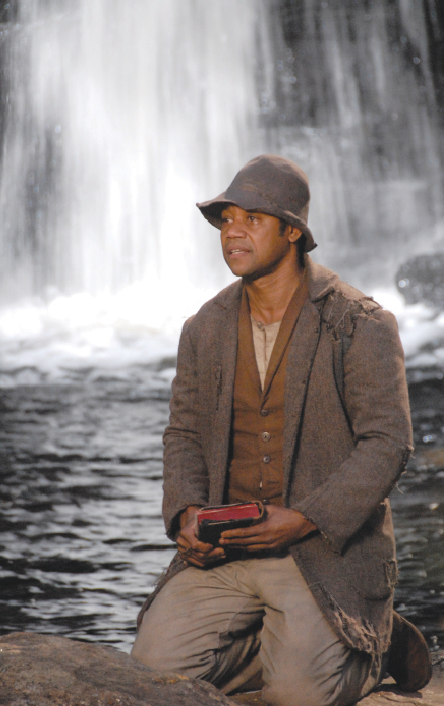Numbers may lack the finesse of words, but they’re hard to beat for making a case. The Passion of the Christ cost around $30 million to make. It returned more than $604 million at the box office worldwide and a further $203 million in US rentals alone. The Lion, the Witch and the Wardrobe came with a price tag of $180 million, but it sold $739 million worth of tickets. Make no mistake, there is a valuable faith-based film market and Hollywood is keen to capitalise on it.

Freedom (2014)
Starring: Cuba Gooding Jr, William Sadler
In Australian cinemas August 2014
But for every great success story there is a corresponding failure. Darren Aronofsky’s Noah was supposed to gather in the faithful but its $359 million return on a $125 million investment must have left Paramount wondering what went wrong. Just a few years earlier the indie film Courageous about a team of Christian policemen had received a rare A+ CinemaScore from filmgoers and 17 times its budget in ticket sales. Why couldn’t one of the world’s biggest movie producers get Christians to fall in line? Because they didn’t understand who they were talking to.
Hollywood studios regularly set up meetings with prominent Christians in the hope of engaging their support for faith-based films. But believers are not just interested in having their stories told. Christian viewers look at faith-focused storylines differently to other demographics. For most viewers the goal is escapism; entertainment, pure and simple. But Christians see stories like these as opportunities to affirm what they believe. So they sit in their cinema seats listening carefully, rather than letting go, and that leaves scriptwriters little margin for error. It also explains, in part, why faithful people can perversely be the death of a faith-based production.
The last instalment to The Narnia Chronicles franchise illustrates the point. The Voyage of the Dawn Treader got off to a slow start at the box office because Christians were worried about the inconsistencies with the original C.S. Lewis novel. In the end the box office returns were reasonable but the reception lukewarm. The franchise faltered and has spent the last four years in development. Ironically the audience that has most to gain from a production of The Silver Chair put it on hold. But is that because Christians are in danger of forgetting what films are for?
This month sees the release of another tale that hopes to engage Christian audiences, this time from inside the family. Freedom is a movie by Heritage Films, an Australian-based production house with a faith-based approach to storytelling. Its story opens with four slaves escaping from a Virginian plantation and running for the free North. Cuba Gooding Jr. stars as Samuel, a father and husband determined to fight his way to liberty. However his mother Adira (Phyliss Bash) is a woman of faith who believes Samuel has to escape from a greater slavery than his chains. As their journey progresses it becomes clear her son is caught up in a very Christian tale. His grandfather came to America on the ship that saw John Newton converted, and the songs they sing, including “Amazing Grace”, are Samuel’s link to that heritage. If Samuel learns to sing them for himself he’ll have done more than gained a new song.
Freedom has shortcomings that will undoubtedly concern some. It’s hard to deliver an Atlantic storm without a multi-million dollar sound stage, and a small budget means less time to re-shoot scripting problems. In this case Freedom sometimes struggles to know whether it’s a drama or a musical, and some historical errors have been allowed to creep in presumably to spare the sensibilities of its family audience. But I think the film still achieves what should be considered its primary goal: it makes us feel differently about a life built on God.
Heritage Films operates by the motto, “Movies change people, people change the world.” As Christians we need to remember that change rarely comes through intellectual argument alone. The real value of cinema is how it teaches us to feel about a subject. The facts of World War Two are readily available at any library, but it takes a film like The Book Thief to bring them home. Likewise Freedom teaches us to respect the very ordinary men and women whose belief in a higher judge led them to do extraordinary things.
You and I may watch faith-based films and wonder at the things left out. But let’s remember that, in a secular world, faith making it to the big screen is a miracle worth celebrating. This is the question that should be levelled at every faith-based story: does it lead us to feel about God the way we should? Then that’s enough to be getting on with. A conversation will fill in the rest.
Email This Story
Why not send this to a friend?



